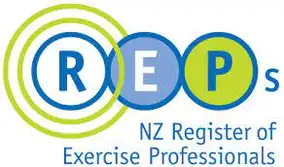Type of qualification
Level of study
An undergraduate qualification is usually the first one you study.
Our courses follow the New Zealand Qualification Framework (NZQF) levels.
Time to complete
International students
International students are not New Zealand citizens or residents.
Study a Bachelor of Sport and Exercise – BSpEx
Great jobs - plenty of choices - wide range of subjects
Get a broad, interdisciplinary understanding of key sport and exercise concepts and knowledge. Then dig deeper by choosing one of three specialist areas.
Our blended learning approach combines online delivery with optional on-campus face-to face contact workshops to develop your theoretical knowledge and practical skills. This will allow you to balance study, work and play.
As part of your major, you will gain invaluable real-world experience in our sport and exercise practicum. This hands-on internship can be based anywhere in New Zealand, or even overseas. You will apply your skills and knowledge as you prepare for entry to the workforce.
World-class, highly experienced staff
You will learn from the best, with many of our staff involved in sport as competitors, coaches, administrators and managers. Our research-active academic staff will teach you the most up to date information to help prepare you for the ever-changing and expanding world of sport and exercise.
Further study
Following successful completion of your Bachelor of Sport and Exercise, you may be interested in the Master of Health Science (Sport and Exercise)
A BSpEx is a good fit if you:
- are passionate about sport and exercise
- see the potential for sport and exercise to positively impact society
- want to help people live happier, healthier, better lives.
Entry requirements
Admission to Massey
All students must meet university entrance requirements to be admitted to the University.
Specific requirements
There are no specific entry requirements for this qualification, outside of university admission regulations.
English language requirements
To study this qualification you must meet Massey University's English language standards.
Prior learning, credit and exemptions
For information on prior learning, exemptions and transfer of credit or other questions:
- review the Recognition of Prior Learning regulations
- contact us through the Get advice button on this page.
English language skills
If you need help with your English language skills before you start university, see our English for Academic Purposes (EAP) courses.
Official regulations
To understand what you need to study and must complete to graduate read the official rules and regulations for this qualification.
You should read these together with all other relevant Statutes and Regulations of the University including the General Regulations for Undergraduate Degrees, Undergraduate Diplomas, Undergraduate Certificates, Graduate Diplomas and Graduate Certificates.
Returning students
For returning students, there may be changes to the majors and minors available and the courses you need to take. Go to the section called ‘Transitional Provisions’ in the Regulations to find out more.
In some cases the qualification or specialisation you enrolled in may no longer be taking new enrolments, so may not appear on these web pages. To find information on the regulations for these qualifications go to the Massey University Calendar.
Please contact us through the Get advice button on this page if you have any questions.
Structure of the Bachelor of Sport and Exercise
If you study full-time, in your first year, you’ll take eight 15-credit courses, making a total of 120 credits.
If you plan to study full-time over two semesters, you should aim for 60 credits per semester. You may be able to take some courses at summer school. Make sure you include courses that are prerequisites for the next level of courses you wish to study.
The courses in your first year are common to all majors.
Typical pattern for the Bachelor of Sport and Exercise
Core courses These courses are a compulsory part of your qualification.
Major courses Choose from a selection of courses appropriate for your specialisation.
Elective courses Follow your interests. Your qualification may have selection guidelines for elective courses.
| Year one |
|---|
| 234140 Introduction to Physical Education |
| 234131 Introduction to Sport Organisations and Development |
| 250100 Health Communication |
| 234141 Introduction to Human Movement and Hauora |
| 234111 Training Principles and Practice |
| 234135 Sociology of Sport and Exercise |
| 234121 Functional Anatomy |
| Major |
| Year two |
|---|
| Major |
| Major |
| Major |
| Major |
| Major |
| Major |
| Elective |
| Elective |
| Year three |
|---|
| Major |
| Major |
| Major |
| 234338 Sport and Exercise Practicum 30 credits |
| Elective |
| Elective |
| Elective |
Courses are each worth 15 credits, unless otherwise indicated
Courses and specialisations
Key terms
- Courses
- Each qualification has its own specific set of courses. Some universities call these papers. You enrol in courses after you get accepted into Massey.
- Course code
- Each course is numbered using 6 digits. The fourth number shows the level of the course. For example, in course 219206, the fourth number is a 2, so it is a 200-level course (usually studied in the second year of full-time study).
- Credits
- Each course is worth a number of credits. You combine courses (credits) to meet the total number of credits needed for your qualification.
- Specialisations
- Some qualifications let you choose what subject you'd like to specialise in. Your major or endorsement is what you will take the majority of your courses in.
Credit summary
360 credits
- Core courses – 105 credits
- Major courses – 180 credits
- Electives – 75 credits
Ensure that overall, you have:
- Not more than 165 credits at 100 level
- At least 75 credits at 300 level
Course planning key
- Prerequisites
- Courses that need to be completed before moving onto a course at the next level. For example, a lot of 200-level courses have 100-level prerequisite courses.
- Corequisites
- Courses that must be completed at the same time as another course are known as corequisite courses.
- Restrictions
- Some courses are restricted against each other because their content is similar. This means you can only choose one of the offered courses to study and credit to your qualification.
Schedule A: Core courses
Compulsory courses (Choose 105 credits from)
Course code: 234111 Training Principles and Practice 15 credits
An introduction to the knowledge and skills necessary for the planning, implementation and evaluation of goal-oriented training.
View full course detailsCourse code: 234121 Functional Anatomy 15 credits
An introduction to the structure and function of the musculoskeletal, neuromuscular and cardiopulmonary systems and their importance to health, movement and exercise.
View full course detailsCourse code: 234131 Introduction to Sport Organisations and Development 15 credits
An introduction to the provision of sport, fitness, and physical activity, including the roles of, and relationships between, key organisations and agencies
View full course detailsCourse code: 234135 Sociology of Sport and Exercise 15 credits
An introduction to sociological concepts, principles and theories as applied to sport and exercise.
View full course detailsCourse code: 234140 Introduction to Physical Education 15 credits
An introduction to health and physical education through the exploration of a range of teaching models, management techniques, contemporary issues, and diversity with consideration to the Treaty of Waitangi relevant to undergraduate students.
View full course detailsCourse code: 234141 Introduction to Human Movement and Hauora 15 credits
An introduction to human movement (Te Ao Kori) and its application to the concept of Hauora (holistic health and well-being).
View full course detailsCourse code: 250100 Health Communication 15 credits
This course examines the key principles, ethics and theories of effective health communication for positive health change in individuals and communities. Students will learn to develop and critically analyse health-related messages and research, engage with culturally diverse audiences, and consider social, biological and environmental determinants in health communication.
View full course detailsSchedule B: Specialisations
Majors
Some qualifications let you choose what subject you'd like to specialise in. Your major or endorsement is what you will take the majority of your courses in.
Completing a major is compulsory. A major requires 180 credits including at least 60 credits at 300 level.
Exercise Prescription
Massey’s Bachelor of Sport and Exercise (Exercise Prescription) will give you the knowledge and skills to develop, implement and assess exercise programmes to enhance sport performance, health, and rehabilitation.
Physical Education
The Bachelor of Sport and Exercise (Physical Education) will prepare you for a satisfying career working with youth in sport and exercise.
Sport Development
With Massey’s Bachelor of Sport and Exercise (Sport Development) you’ll be prepared for the important roles sport development plays in the health, wellbeing, and economy of our society.
Fees and scholarships
Fees, student loans and free fees scheme
Your tuition fees may be different depending on the courses you choose. Your exact fees will show once you have chosen your courses.
There will also be some compulsory non-tuition fees and for some courses, there may also be charges for things such as study resources, software, trips and contact workshops.
- Get an estimate of the tuition fees for your qualification
- View a list of non-tuition fees that may be payable
Already know which courses you're going to choose?
You can view fees for the courses that make up your qualification on the course details pages.
Student loans (StudyLink) and Fees Free scheme
You may be eligible for a student loan to help towards paying your fees.
The New Zealand Government offers fees-free tertiary study for eligible domestic students. Find out more about the scheme and your eligibility on the Fees Free website. To use the site's eligibility checking tool, you will need your National Student Number.
Current and returning Massey students can find their National Student Number in the student portal.
- Student loans (StudyLink)
- Fees Free
- Student portal
Scholarship and award opportunities
Find more scholarships and awardsFees disclaimer
This information is for estimation purposes only. Actual fees payable will be finalised on confirmation of enrolment. Unless otherwise stated, all fees shown are quoted in New Zealand dollars and include Goods and Services Tax, if any. Before relying on any information on these pages you should also read the University's Disclaimer Notice.
Careers and job opportunities
The BSpEx will prepare you for a variety of careers in the growing areas of community sport, fitness, professional sport, sport administration, health and wellness, including roles in:
- community and commercial sports and fitness centres
- medical centres, hospitals, clinics and aged care facilities
- national and regional sporting organisations
- sport events and recreation programmes
- sport venues and facilities
- health and physical activity promotion
- high performance sport
- athlete development
- schools and education (further study required, such as Massey's Graduate Diploma of Learning and Teaching).
What our students say
“I have been able to network with a range of people within the sport and exercise industry and to apply theory to practice, which has enhanced my overall learning experience. I learnt to get comfortable with the uncomfortable, in order to enhance my confidence.”

“My degree has qualified my passion for sport into a prosperous profession in coaching, teaching, leading and managing sport teams.”

Ngāti Porou
“I thoroughly enjoyed studying at Massey University via distance. It allowed me to live the lifestyle that I wanted due to its flexibility.”

Accreditations and rankings

Register of Exercise Professionals
Massey's Bachelor of Sport and Exercise (Exercise Prescription) is accredited by the Register of Exercise Professionals (REPS). Graduates can register as exercise professionals with REPS.
Useful planning information

Key information for students
Compare qualifications and academic information across different New Zealand institutions. Learn more on careers.govt.nz
